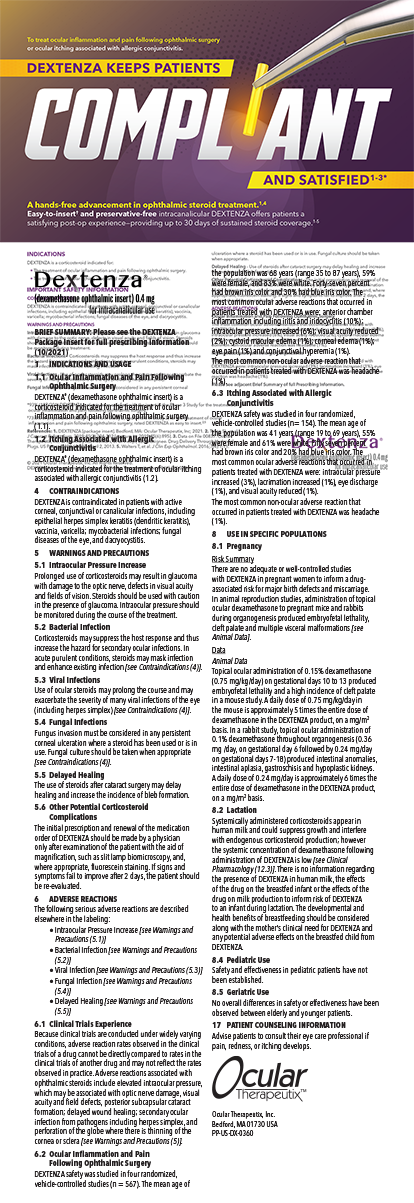
In this time of supply chain challenges due to the COVID-19 pandemic and global political strife, another source of uncertainty is the question of whether the United States is in or moving into an economic recession cycle.
As a sports enthusiast, I liken successful ophthalmology practices to professional sports teams. The coach cannot predict the influential elements on the field or court, and physician-owners cannot predict the ceiling of inflation or the potential onset of a recession. Both must nevertheless have a game plan and a team of players ready to win.
PRESEASON TRAINING
As an ophthalmologist, you are a part of a limited number of physician specialty groups that patients need to access irrespective of what is happening societally, politically, or economically. The good news is that you already have two significant homefield advantages.

STRATEGY NO. 1: EMBRACE THE ROLE OF COACH AND DEEPEN YOUR BENCH STRENGTH
We are 75% of the way through 2022, and current staffing budget commitments are in place. Use this budgeted line item to strengthen a leading-edge advantage. Payroll is typically the most significant expense on the profit and loss statement. Cutting back on staffing and training may seem like a logical first step in the face of an economic downturn. As the pandemic has demonstrated, however, cuts may not be the best place to start. Your practice may offer the high-demand surgery that has a significant profit margin and requires zero investment in additional equipment or infrastructure. None of this will matter without reliable, skilled, loyal, and pleasant staff to answer calls, schedule surgeries, manage charts, perform testing, and submit accurate bills. A weak player roster yields unsatisfactory results.
Team up with your staff to solidify your collective future. This collaboration does not require increasing your payroll or bonus structure. Your employees are facing uncertain economic times and looking for stability and security, just as your practice is. If you’re already paying fair market-rate wages so that your employees do not become free agents, the following strategic move can help rally your staff at little to no expense to the practice.
Sit down with the entire team and have an honest conversation about your preparedness plan for whatever economic changes may be coming in 2023. The staff looks to the physician-owners who have the most skin in the game for stability and security. There should be no doom and gloom, no projections about how difficult it might be, and no sensationalism over what might happen. Get everyone’s head in the game and ask the questions:
- No. 1: Is anyone on the team not invested in winning this season?
- No. 2: If so, what will it take to get you invested?
Come prepared with a playbook. The objective is to win. You must retain existing patients and attract new ones by providing excellent experiences and outcomes. Identify two or three areas where you can deploy technology, marketing savvy, and your staff’s skills to make a difference.
Get the players’ buy-in. Income is a factor, but professional athletes play hard for the love of the game and the thrill of the win. Motivation comes from feeling a part of the team and knowing that your participation in the game matters. Being a team member requires connection and accountability. Engage staff to identify one opportunity for the team to retain existing patients and attract new patients. Explain that the best ideas are those that leverage what you already have in play: your existing patient base and infrastructure, practice reputation, referral sources, excellent outcomes, and staff expertise.
Set the ground rules. The first rule to set is that you are forming a season-winning team irrespective of the past. People’s lives, careers, jobs, and financial security changed in March 2020. Deliver your message without inciting fear, or key staff members may decide to become free agents. Explain what you need from every team member in reasonable and achievable terms:
- Leadership on the field;
- A laser focus on the goal; and
- A willingness to change to win.

STRATEGY NO. 2: FOCUS ON ATTRACTING PATIENTS
Retain and recapture existing patients. Find the vulnerabilities in your defensive line and close those gaps. In my experience, a typical ophthalmologist has between 1,000 and 2,000 patients who have not been cared for in the past 5 years and should be recaptured. Every patient’s experience with the practice—when they call to make an appointment, check in, see the physician, and check out—should be favorable. Their experience should motivate them to leave a positive online review, refer a friend or family member, and, most importantly, return for their next appointment. You might be surprised by how happy patients can affect practice dynamics.
Attract new patients. Get your offensive line in tip-top shape. Many people have relocated during the pandemic. Get new residents’ attention. Find out where your practice comes up in the local Google search rankings and what your online reputation says about your practice. Is your website engaging, optimized, and focused on what currently interests patients? Are you emphasizing how they can afford the services they need (eg, insurance plans you accept, a link to patient financing, staff assistance with preauthorizations)? Is your social media feed rich in photographs and videos to attract the attention of scrollers? Now is the time to enhance your online presence.
Solidify referral partner relationships. Engage your local network of optometrists, primary care providers, and community influencers. Patient referrals could become a critical strategy in your playbook. With a referral strategy in place, your physicians should be able to take on additional surgical cases and deliver positive patient experiences. There is strength in numbers. Your referral partners, or special teams, are an asset.




